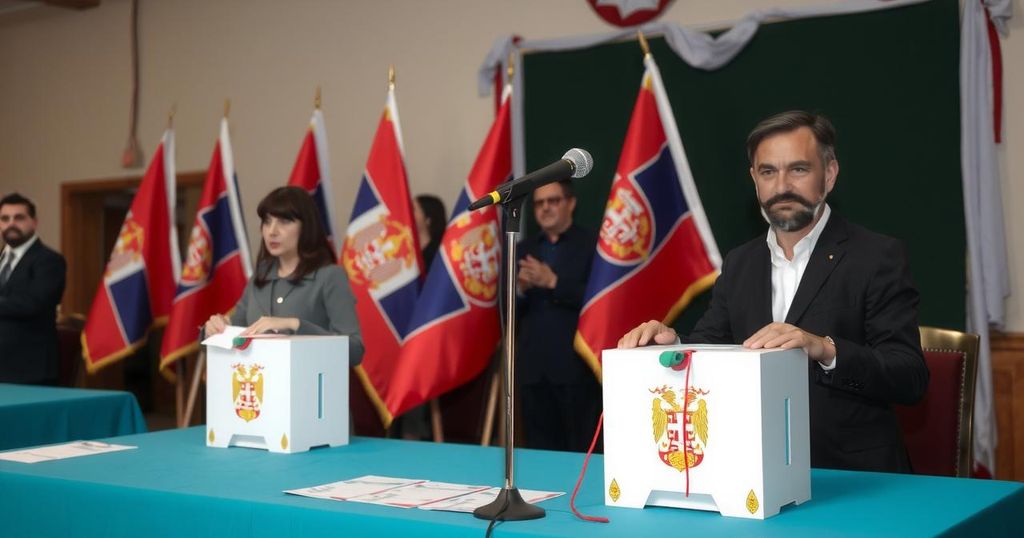Kosovo Appeals Panel Allows Ethnic Serb Party to Participate in Elections

Kosovo’s election appeals body has cleared the way for the ethnic Serb party, Srpska Lista, to compete in the upcoming parliamentary election. This decision overturns an earlier ban by the Central Election Commission, ensuring the party can field candidates in a vote pivotal for the current government. International concerns about the potential impact on Kosovo-Serbia relations are also noted as the election draws near.
Kosovo’s election appeals authority has lifted a ban on the main party representing the ethnic Serb minority, facilitating its participation in the upcoming parliamentary elections. The Electoral Panel for Complaints and Appeals determined that the Srpska Lista party met the necessary political criteria for registration. This decision countered an earlier ruling by the Central Election Commission, which had denied certification based on concerns regarding the party’s nationalist tendencies and its significant connections to Serbia.
The panel highlighted that the commission’s rejection was inconsistent with the legal requirements pertaining to the registration process for political entities. Srpska Lista currently occupies nine out of the ten seats reserved for the Serb minority in Kosovo’s 120-member parliament. The party is set to put forth 48 candidates for the parliamentary election scheduled for February 9, a pivotal moment for Prime Minister Albin Kurti’s administration, which achieved a significant victory in 2021.
International stakeholders have expressed alarm over the Central Election Commission’s initial decision, suggesting it could exacerbate the already strained relations between Kosovo and Serbia, despite ongoing efforts to mend ties. Following NATO’s intervention in 1999, Kosovo emerged from a conflict that resulted in the deaths of approximately 11,400 people, predominantly ethnic Albanians, and subsequently declared independence in 2008, a move not recognized by Serbia. Nonetheless, Belgrade continues to view Kosovo as part of its territory, maintaining considerable influence over the local Serb population.
The political landscape in Kosovo is marked by tensions between the ethnic Albanian majority and the ethnic Serb minority. Kosovo was historically a Serbian province until NATO’s military involvement in 1999, which concluded a violent conflict and facilitated the separation of Kosovo from Serbia. Since Kosovo declared its independence in 2008, Serbia has refused to acknowledge this status, leading to ongoing diplomatic disputes. The electoral dynamics often reflect ethnic divides, with political parties forming along these lines. The legitimacy of political representation for the Serb minority remains a contentious issue, impacting electoral processes and stability in the region.
The decision by Kosovo’s appeals panel to allow Srpska Lista to participate in the upcoming elections underscores the ongoing complexities within Kosovo’s political framework. It highlights both the vital role of electoral representation for minority communities and the delicate balance necessary to maintain peace between Kosovo and Serbia. As the February elections approach, the outcomes may significantly influence the future political landscape and inter-ethnic relations in the region.
Original Source: www.voanews.com








